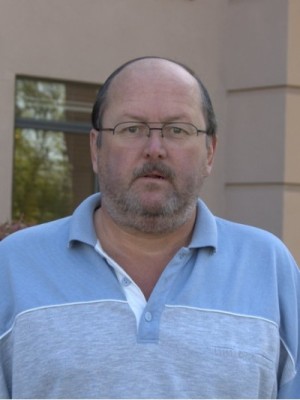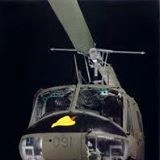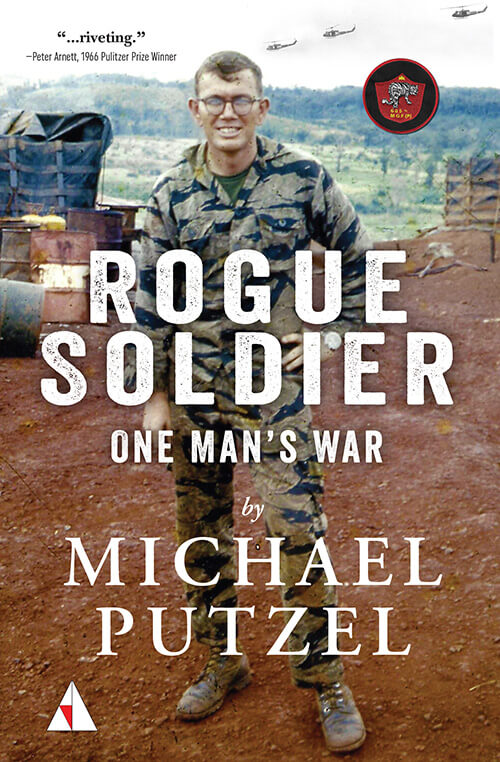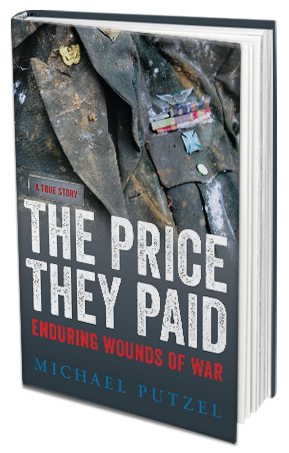Blog
A Sad Man Left Behind
Posted by • May 18, 2015
It was bitter cold at Arlington National Cemetery on February 18, 2009, as mourners gathered in the warmth of a waiting room in the administration building before walking out into wet snow to join the funeral procession.
A middle-aged man whose features looked vaguely familiar approached me and spoke.
“You don’t know who I am, but I know who you are,” he said, “and I want to tell you that not everyone here is pleased with the way this service is being conducted.”
I was there, at the request of the family I knew, to eulogize a military officer I had written about as a remarkable and storied leader of an air cavalry troop in Vietnam thirty-eight years earlier. Twice nominated for the Medal of Honor, Army Major James T. Newman wore the Distinguished Service Cross and the Silver Star, the nation’s second and third highest awards for combat valor, and a chestful of other ribbons, including the Purple Heart for those wounded or killed in action. It was difficult to imagine why anyone who knew the man’s history would be less than pleased about burying him with full military honors that included a team of six horses pulling a caisson with Newman’s flag-draped casket aboard, a band, rifle squad, honor guard, and all the trappings of a crack military ceremony.
I looked quizzically at the strange man before me, and he went on to explain the cause of his distress.
“My name is Roger Newman,” he said, “and I am Major Newman’s eldest son—his real next-of-kin—and they won’t give me the flag.”

In countless conversations with Major Newman in the last years of his life, he told me he had only one child, a son born after the war, known as Jay. It was Jay who had invited me to be at Arlington that day. As it turned out, Roger was telling the truth about being the eldest son, part of a broken family I had not known existed. Jim Newman married at least a couple more times, and although the decorated veteran’s last wife was there that day as well, they had separated, and she would not be given the folded flag from the casket either. It went instead to Roger’s half-brother Jay, who was, without question, his father’s choice.
What I learned in the days and weeks to come was that the man I knew in Vietnam as a courageous, battle-hardened leader, who was worshipped by his men because they knew he would never leave them behind, was the same man who came home from the war and walked out on his wife, who had been his high school sweetheart, and left Roger and another son, Ronald, behind and never spoke to those boys again. They were teenagers at the time and adored their soldier/hero/father, who raised them with tough, Army discipline and whipped them when he thought they needed it. They were confounded and deeply hurt by his walking out on them.
“Vietnam changed him,” they said. It was all they knew. And it did.
Ronald, who was younger and remembered less of his father, was no less angry about being abandoned and stayed that way until, when he was 34, he found salvation in Jesus Christ. His first marriage failed, but his second took, and he committed himself to raising his children as he wished his father had raised him.

Roger, the man who approached me at the funeral, never really got over his father. Despite his seething bitterness, he wanted to be the son of the hero and attempted to replicate a framed display of his father’s medals. His profile picture on Facebook was a photo of his father’s helicopter that now anchors a Vietnam War exhibit at the Smithsonian Institution’s National Museum of American History.
Success in work and marriage eluded Roger, and in recent years, he moved into his mother’s mobile home in North Carolina. There, his diabetes, a trait that ran in his father’s family, took its inevitable toll on his body. When I heard he was failing, I hurriedly sent him a copy of my new book, The Price They Paid: Enduring Wounds of War, that recounts the story of his father before, during and after the war, and the men who followed him, even to that snowy gravesite nearly four decades later.
In a final insult, FedEx lost the package. Roger Newman died last week of multiple organ failure caused by his diabetes. He was 60 years old.
###
Michael Putzel, a distinguished American journalist, is the author of The Price They Paid: Enduring Wounds of War, the stunning and dramatic true story of a legendary air cavalry commander and the troops who followed him into the most intensive helicopter warfare ever–and how that brutal experience changed their lives forever.
4 thoughts on “A Sad Man Left Behind”
Comments are closed.







Mike
this was beautifully written. Yes Roger was the 1st born to James Newman and there is no replacing that fact. He deserved more than he got out of life. his memory will live on.
Ronald, Thank you for your comments about your brother and the kind words about my blog post. As I hope my book makes clear, his was one of those “enduring wounds of war.” I hope I’m right that you overcame similar pain and used your experience to ensure that your own family would not suffer as you and Roger did.
Thank you Mr. Putzel for this memorial to Roger. I was married to him and knew him when we were 16 years old when his world came crashing down. I am so grateful that you listened to him and understood his real family’s heartache. He carried his sadness and heartbreak with him to death.
Thank you again,
Brenda Newman Frye
Thank you for the wonderful tribute about Roger. He was a brother in law at one time and had remained a friend of the family. I never realized all of Roger’s pain when it came to his father until I read this tribute. He spoke little of his father, but when he did, you could tell that he would have been one of those “kids” that would brag and say, “That was my Dad”!